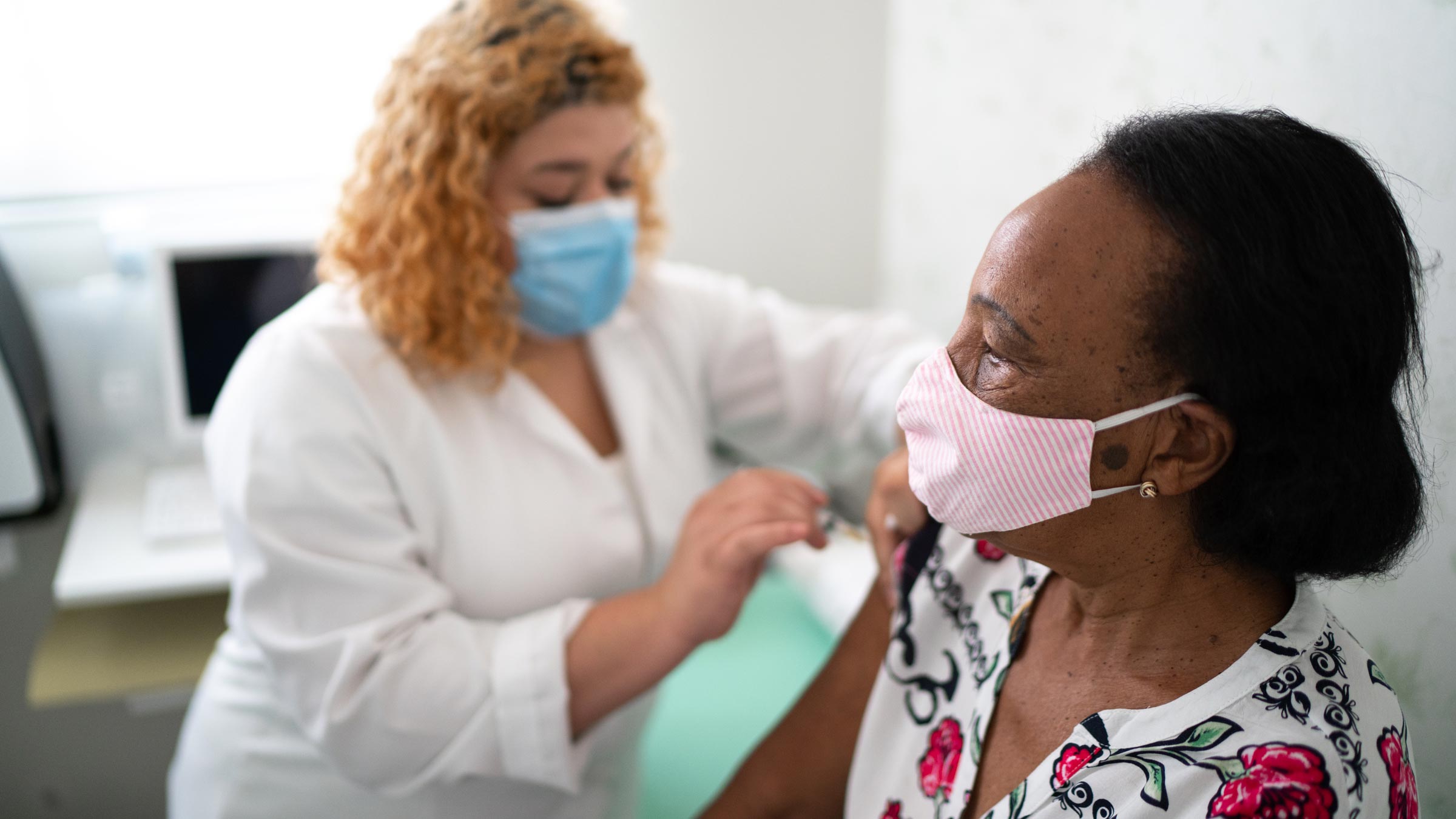
Editor’s note: As what we know about COVID-19 evolves, so could the information in this story. Find our most recent COVID-19 articles here and learn the latest in COVID-19 prevention at the Centers for Disease Control and Prevention. Some photos and videos on this site were filmed prior to the COVID-19 outbreak or may not reflect current physical distancing and/or masking guidelines.
When the COVID-19 vaccine was developed, we knew we were likely going to need to administer “booster” vaccines — that is, another injection to help COVID-19 immunity last longer.
We also knew that some people with compromised immune systems wouldn’t be able to produce as many antibodies to COVID-19 after typical vaccination. This is true of many vaccines — people who, for example, have received an organ transplant, are undergoing chemotherapy, have advanced HIV/AIDS or take immune-suppressing medication won’t be able to create the immunologic response to vaccines to build adequate protection against disease. Thus, a third dose of the vaccine would benefit them.
The difference between boosters and third doses
The FDA currently recommends that people who are significantly immunocompromised receive a third dose of the COVID-19 mRNA vaccines currently approved by the FDA (Pfizer, which has full FDA approval, and Moderna, which has emergency use authorization).
In accordance with the FDA’s recommendation and that of the CDC’s Advisory Committee on Immunization Practice (ACIP), The Ohio State University Wexner Medical Center is currently providing third-dose vaccines to eligible immunocompromised people.
A booster shot of the COVID-19 vaccine is different from what’s currently labeled a “third dose” primarily because of the difference in eligibility and timing.
A booster refers to a dose of a vaccine given to someone who did likely build enough protection initially when they received vaccination, but who may have lost some of that protection over time. It’s called waning immunity, and it’s something scientists and health officials expected to happen with COVID-19 vaccines.
Who is eligible for COVID-19 booster shots?
CDC guidance currently says that everyone 18 and older should receive a COVID-19 vaccine booster dose (Pfizer, Moderna or Johnson & Johnson) if they've already completed a primary vaccination series under the following conditions:
- If you completed a Pfizer or Modern COVID-19 vaccine series (both doses) at least six months ago, you should get a booster dose
- If you completed a Johnson & Johnson COVID-19 vaccination (one dose) at least two months ago, you should get a booster dose
Your booster vaccine can be any of the brands currently authorized for use in the United States.
If you're 16 or 17 years old and received a primary vaccination series of Pfizer at least six months ago, you're now eligible to receive a booster dose of either the FDA-authorized Pfizer vaccine or the FDA-approved Comirnaty mRNA vaccine.
People who are pregnant can receive any of the currently FDA-authorized or FDA-approved COVID-19 vaccines as a booster dose, if they've already received their primary vaccine series.
Eligibility standards for vaccines provided at the Ohio State Wexner Medical Center are set by the CDC, FDA and Ohio Department of Health. View specific eligibility for third dose vaccines and booster vaccines.
Where can I get a booster shot?
COVID-19 boosters are currently available at several Ohio State Wexner Medical Center locations as well as many other clinics and retail pharmacies. Learn more about how to schedule and who is currently eligible for COVID-19 booster vaccines.
Does this mean the COVID-19 vaccines aren’t working?
No — data shows that the available COVID-19 vaccines are working effectively to prevent severe cases of COVID-19, hospitalization and death. But we’re seeing some waning protection, as was expected, and booster shots and third doses can help vaccinated people keep that protection longer.
Booster shots are common for many vaccines. The hepatitis B and shingles vaccines, for example, require boosters to achieve optimal immunity.
Should my third dose or booster dose be the same brand as my previous doses?
The FDA has approved "mixing and matching" of brands of COVID-19 vaccines between the initial course and the booster. However, your ability to choose a specific brand may be subject to availability at your vaccine site.

Ready to get vaccinated?
We have appointments available as early as today.
Schedule now




